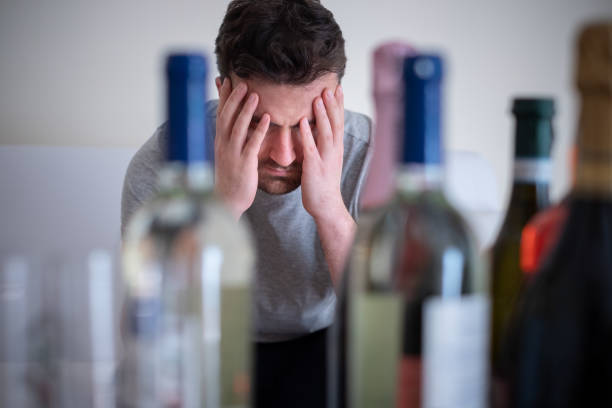Medical Detoxification before Rehab

The first step on the road to recovery is to ask for or accepting treatment.
You may have different ideas and beliefs if you've never gone to rehab for alcohol or drug addiction. You might think of things you've seen on movies or television shows or pictures of people going through painful withdrawal. Medical detox is one of the most important steps in the recovery process.
Medical detox ensures the safety and comfort of patients and is usually a prerequisite prior to actual rehabilitation. Even if medical detox is not required before treatment, it may be beneficial.
What exactly is Medical Detox?
Medical detox is the safe elimination of alcohol and other drugs out of the body. It is usually used in conjunction with medication to help the process be more relaxed. The procedure is performed in a hospital with doctors and nurses on site all day, every day. Many people are hesitant to seek the process of recovery and treatment because they fear painful withdrawals. Most people avoid treatment because they've never attempted to stop using the drug of choice and have not experienced full effects. It is vital to realize that withdrawal symptoms can be greatly reduced in medical detox. Medical detox provides comfort and assures that addiction is stopped safely and properly.
substances-most-often-responsible-for-detox-admissionsDetox from substances like alcohol and benzodiazepines can be a very dangerous withdrawal process and can lead to severe seizures and cardiac arrest. Tapering medications are prescribed by doctors to reduce the chance of adverse reactions from abrupt discontinuation of substance use. Another benzodiazepine, that is likely to be prescribed to treat seizures is likely to be used in combination with alcohol and benzodiazepines. The patient is removed from the medication slowly rather than the cold turkey method, which lessens symptoms and enhances the safety. You might also be able to take other medication to treat depression, anxiety, sleep and cravings.
While withdrawal from opiates isn't usually life-threatening, it can be very painful and difficult to quit using the drug. In the case of medical detox, just as in the case of alcohol or benzodiazepines, a taper is used. The taper, typically buprenorphine (Suboxone or Subutex) reduces the symptoms of opiate withdrawal as well as cravings. Buprenorphine detox has many benefits and evidence suggests that it has higher success rate than people trying to quit on their own.
Medical detox may also involve the possibility of Naltrexone or Vivitrol being prescribed. These medications block opioid and pleasure receptors within the brain. They can reduce cravings and inhibit the effects of opioids altogether. If someone does fall back These drugs could assist in stopping the risk of overdosing.
How does detox work?
Doctor speaking with patientMedical detox, based on a person's past drug-use habits, can last anywhere from 3-10 days. In the beginning, doctors conduct an evaluation to determine the length of time detox is required and what amount of medications are required. The detoxification program for medical use can be modified or decreased based on the body's response.
Medically-supervised detox could reveal other diagnostics that aren't available to anyone trying to detox on their own. Blood tests are conducted and medical staff can determine the need for further medications required. People who are dependent on active substances are at risk of developing liver diseases or other diseases that are communicable, such as HIV and Hepatitis C. A detox program will help to identify the issues and develop an appropriate treatment program. Skipping a medically-assisted detox can allow diseases and viruses to go undetected and leading them to develop. If left untreated liver problems, HIV, and Hepatitis B could lead to death.
A patient can be transferred to inpatient rehab after the detox process. Some treatment centers have detox facilities on site. Detox centers also exist independently, but they should be transferred to a treatment center following detox. One should always plan further treatment after detox.
The Benefits
Medical detox can be a safe and comfortable way to increase the chances of a full recovery. Medical issues that are underlying can be treated physically and mentally. The National Alliance on Mental Illness, (NAMI), estimates that 53% of patients suffering from addiction disorders suffer from a mental illness such as major depression, Schizophrenia or Bipolar disorder. In Intensive Outpatient Program in California doctors can evaluate an individual's mental state and the therapist assigned to each patient. Inpatient rehabilitation may be more effective when a custom treatment plan is developed prior to the inpatient or outpatient rehabilitation. This will allow a person to reap the maximum benefits of the treatment process.
Although there is significant evidence that detox is crucial, there is also equal evidence that detox by itself is not sufficient. NIDA says detox is only one step of the treatment process. Below is a diagram created by NIDA which outlines the elements of effective treatment. It is interesting to note that medical treatment is included. Medical detox is not only an idea. Medical detox is usually required to ensure an efficient treatment experience.
